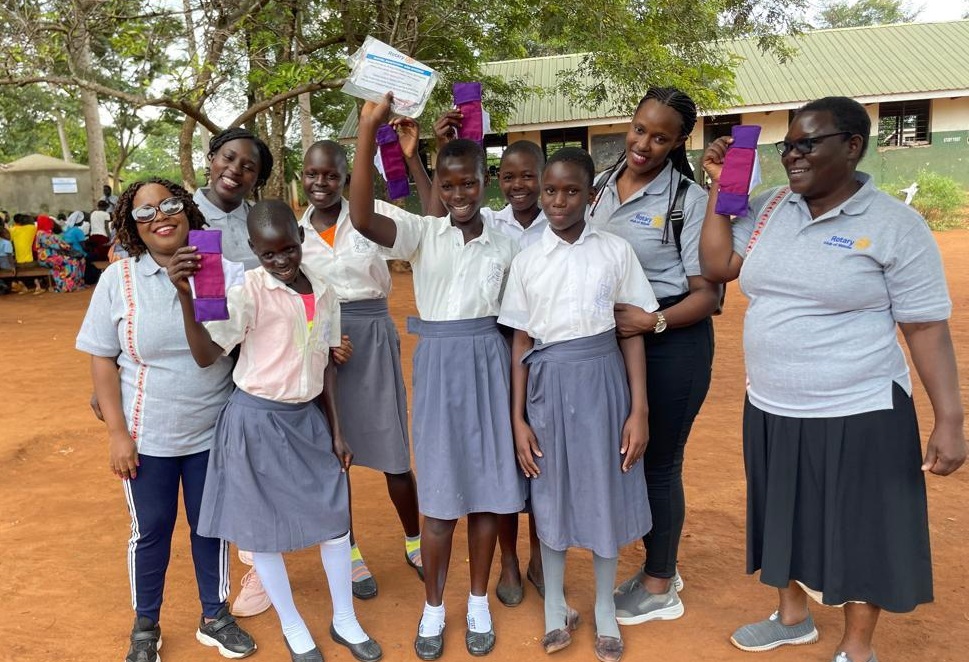In Bugiri District-Busoga Region, the problem of school dropouts, particularly among girls, has become a pressing concern. According to recent statistics in the Busoga region, approximately 30% of girls leave school before completing their education, often due to a lack of resources to manage their menstrual hygiene. This alarming trend highlights the urgent need for targeted interventions to keep girls in school and ensure their well-being.
Since 2022, the Rotary Club (RC) of Ntinda has been making strides in improving health and education for young girls in Uganda through its Menstrual Hygiene Management (MHM) training. This initiative is part of the larger Bugiri Water, Sanitation, and Hygiene (WASH) project, aiming to equip girls with the knowledge and tools they need to manage their menstrual hygiene with dignity and confidence.
The club has successfully implemented MHM training in five primary schools in Bugiri; Magoola, Butumba, St. Jude Nantawawula, Busoga Muslim, and Makoma Primary Schools. Three Hundred Sixty-Nine (369; 335 female and 34 male) students and thirteen (13) senior teachers have benefited from this program with a ripple effect, which not only enhances their education but also promotes their overall well-being.
At Magoola Primary School, for example, 13 senior teachers underwent training to educate students about menstrual hygiene and sexual reproductive health. Additionally, 70 girls and five boys learned to make reusable sanitary pads and received hygiene kits.
Butumba Primary School reported similar success, with 70 girls, eight boys, and two teachers participating in the training.
St. Jude Nantawawula Primary School also contributed to these efforts, where 51 girls and six boys learned essential skills. The school’s health club is now dedicated to sharing this knowledge with more students. Meanwhile, at Busoga Muslim Primary School, 71 girls and 10 boys received training and dignity kits to help them manage their menstrual hygiene.

Finally, Makoma Primary School provided training to 73 girls and five boys, incorporating self-defence techniques alongside MHM education.
Despite these achievements, the project faced some challenges. The number of girls trained fell short of expectations, partly due to school dropouts during the COVID-19 pandemic. The Club is actively working to bridge these gaps and reach more students in upcoming training sessions.
RC Ntinda’s MHM training is a vital initiative that helps remove barriers preventing girls from attending school regularly. By providing practical skills and essential resources, the club is addressing a critical health issue and empowering the next generation of young women.
As this project continues to grow, the Rotary Club of Ntinda is committed to partnering with various institutions to expand MHM training to more schools in Bugiri and beyond, ensuring that no girl has to miss school due to a lack of menstrual hygiene resources. By empowering girls today, we are helping create a brighter future for the children of Bugiri.
The authors are; Rotarian Leah Mbabazi, and Rotarian Margaret Adong, members of RC Ntinda
Send us your story or opinion on: dailyexpressug@gmail.com. You can also follow Daily Express on WhatsApp for all the latest news and updates.


